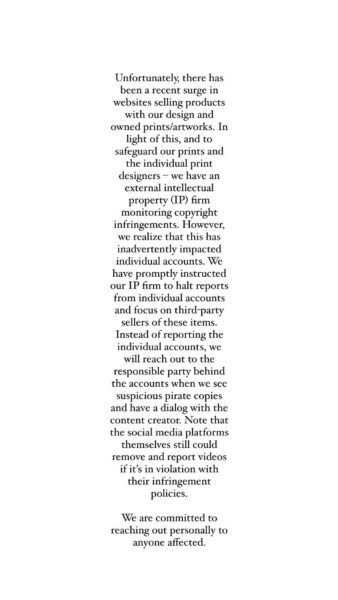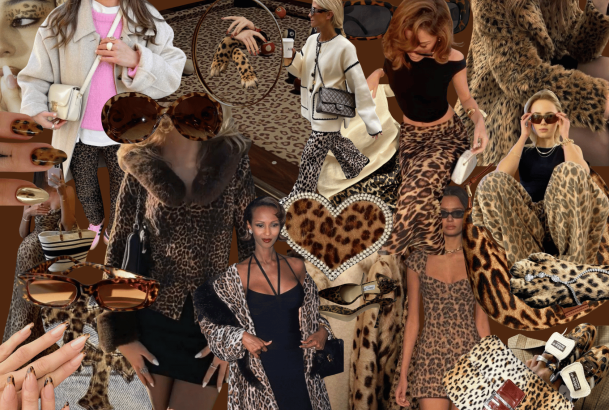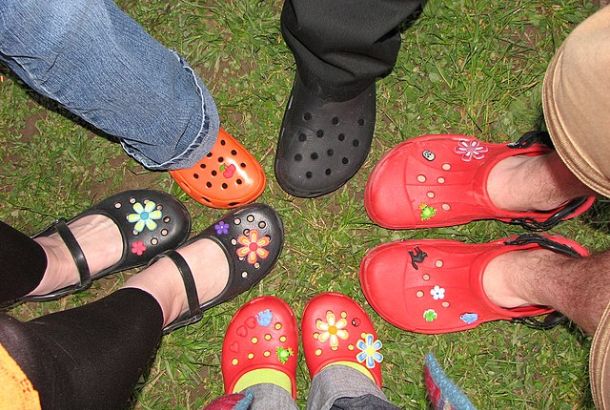Matilda Djerf and the vulnerability of influencer brands
By Poppy Clayton and Lucie Bellingham

In 2020’s brand and influencer culture, it’s hard to create a brand free of scrutiny and controversy. For a while, Swedish influencer Matilda Djerf and her brand Djerf Avenue experienced smooth sailing success, racking up millions in revenue every year, with most recent statistics showing a profit of $22m, according to the New York Times.
With its championing of inclusion and its ethically made garments, it was difficult to find anything to critique. However, the brand has recently come under fire after fans accused Djerf Avenue of targeting small influencers for platforming ‘dupes’ of her famous prints and items.
TikTok users were hasty to come after Djerf with receipts, citing the supposed hypocrisy of the Swedish influencer’s brand for its attitude towards dupes when Djerf herself was once a dupe wearer.
Her clothing brand has come under fire for producing duplicates of pre-existing items, such as Djerf Avenue’s ‘breezy shirt‘ being spookily similar to shirts which existed long before Djerf’s. Brand Le Apt which launched in 2018 has sold clothing such as blazers and shirts before Djerf Avenue even existed, with posts of products similar to her own even being liked by Matilda herself. Matilda even features in one of Le Apt’s posts sporting their oversized summer shirt which is eerily similar to the breezy shirt Djerf Avenue had yet to release. Considering the recent backlash, can Djerf recover from an internet that feels betrayed?
Controversy
Despite starting her own career as a social media influencer, Djerf Avenue has been accused of targeting micro-influencers across TikTok, reporting their videos for copyright infringement and causing the creators’ accounts to be restricted and their videos taken down. The content being removed is all linked by a common thread; it all seems to feature a less expensive version of her clothing, a dupe or alternative to a Djerf Avenue original. For example, these ‘go slow‘ fruit pyjamas from Djerf’s site, and the corresponding Amazon dupe.
This has caused a huge dispute among her followers, who were quick to point out that her own brand Djerf Avenue is often based on styles duped from other brands and that the pieces are not exactly original, but rather based on ‘Scandi style’. This style promotes the ‘clean girl’ aesthetic, focusing on simple, functional clothing, often in neutral tones. Djerf Avenue’s ‘breezy shirts’ bear an uncanny likeness to a LeApt shirt Djerf which was pictured wearing on her Instagram in 2019.
Instagram and TikTok backlash
In response to these allegations, Matilda has deactivated her TikTok account and Djerf Avenue have posted a since-deleted statement on both their Instagram and TikTok stories explaining that “Unfortunately, there has been a recent surge in websites selling products with our design and owned prints/artworks.” A lot of fans were happy with this statement and understood the brand’s desire to protect their own patterns and designs, but others were keen to point out hypocrisy.

Brand Controversies
Djerf Avenue is not the only brand that has suffered under public scrutiny, with many celebrity and influencer-owned brands failing to save themselves after controversy.
Famously, Kanye West’s brand Yeezy was initially very commercially successful, with the brand’s trainers and hoodies selling out instantly. West was partnered with Adidas, but after a string of criticism in 2022, Adidas split with the rapper and lost up to $300 million in the process.
Makeup brand Morphe relied heavily on collaborations for most of its revenue from makeup influencers such as James Charles and Jeffree Star, which helped the brand generate $400 million in sales in 2019. However, due to a series of scandals surrounding influencer partners Charles and Star, Morphe closed all of its US stores in January of 2023, with customers citing lacklustre service and subpar quality products.
Possibly the most famous influencers in the world, the Kardashians, have a plethora of failed businesses under their belt. In 2012, they launched the beauty brand Khroma Beauty, which was swiftly pulled from shelves due to multiple copyright infringement lawsuits from previously existing brands with similar names.
Even more ludicrously, in 2010, they launched the Kardashian Kard, a prepaid MasterCard adorned with photos of their faces. It would cost kids $100 for just 12 months of use with a list of inordinate charges to go along with it. Within less than a month amidst doubts about its legality, the project was shut down.
Now, it’s doubtful that Matilda Djerf will be releasing a ‘Summer Berries’ credit card any time soon, but the supposed ‘faux transparency’ of the brand may eventually lead to its downfall. Despite its openness on manufacturing, there is no Modern Slavery Declaration, Code of Conduct, or other policies relating to garment workers on the Djerf Avenue website.
Brands such as H&M, Uniqlo, and Urban Outfitters all have up-to-date statements pertaining to their factories and workers. To stay on top of the influencer brand game, Djerf Avenue needs to be totally transparent about itself rather than present the bare minimum.
Scandi Style
‘Scandi style’ predates the beginning of Matilda Djerf’s rise to influencer stardom. However, she has often been credited as the eponym of Scandinavian style. In an interview with Vogue actress Amelia Hoy, she defined the style as “Rooted in bold simplicity and wearability, and it is clothing that can and will be used daily.” She continued, “I still enjoy watching fashionistas and models on bikes as they transport themselves from show to show at Copenhagen Fashion Week. It really speaks volumes about the demand for functionality in Scandi style.”
Simplicity and functionality are often the pillars of the Scandi aesthetic, and the clothing is rooted in the furniture styles we all know and love. Djerf has been dubbed the “Brigitte Bardot of the Nordics” according to Vogue Scandinavia, but surely the Brigitte Bardot of the Nordics is in fact the Scandinavian aesthetic itself.
Scandinavian furniture emerged in the 1950s, and “Prioritised democratic, affordable, and sleek furnishings and interiors” according to Architectural Digest. The appearance of ‘Scandi’ in popular furniture came over 40 years before Matilda Djerf could even say the word blazer. For important publications like Vogue to suggest Matilda is a trailblazer of the style is like Harry Styles claiming to be the first male singer to embrace gender-fluid clothing; it’s nonsensical.
Microtrends
Djerf Avenue rose to fame with its range of sleek and minimal designs, most famously blazers now selling for £159 a pop. However, despite Djerf Avenue being all about minimal and timeless style, there are definitely some micro trends in its back catalogue: cropped sweatshirts and purple monochrome sets, to name a few that are no longer for sale on the online shop.
Djerf herself also indulged in the 2020s microtrends of tie dye and flannel shackets, something not in the Scandinavian sphere of minimalism. Ethical brands such as Reformation have been selling similar items to Djerf Avenue for around ten years before the brand was conceived, and have yet to stake any claim on the minimal designs they sell. The famous ‘Summer Berries’ and ‘Fruit’ prints are often being duped by more affordable brands on Amazon, and many creators showcasing the dupes have been met with trademark warnings from Djerf, who recently deactivated her account due to the controversy.
Although Djerf can be credited with showcasing Scandinavian minimalism on a more global platform, she is no trail-‘blazer’ of the style. If the claims of confronting smaller influencers and businesses for ‘copying’ her brand are true, there is little to no warrant.
Clothing Quality
This controversy has also led to questions about the quality of the pieces, and the existing quality issue at Djerf Avenue. Djerf Avenue items retail at a much higher price point than high-street brands, yet the brand is still hailed as a cheaper alternative for designer brands such as Sandro Paris. For example, the Djerf Avenue trench coat cost around £259.00, and an evening top – ‘Midnight One Shoulder Top‘- around £95.00. The fact that Djerf’s items are marked at these prices has led many followers to feel disappointed when receiving their items in poor quality and they’ve taken to TikTok to complain or explain why.
It seems that despite Djerf’s attempt at good quality production, with items manufactured in Portugal because of its quality workmanship, their clothes often consist of a huge percentage of polyester or manufactured fabrics (Djerfs ‘Favorite Pants Oat‘ including up to 74% recycled polyester). In this day and age, fans tend to steer away from polyester fabrics as hyper-aware consumers know these fabrics are not good quality, and not good for the environment.
All in all, this controversy raises the question: how long can influencer-owned brands go before coming face-to-face with the cancel culture of today and the hyper-aware consumer culture they face? The Djerf Avenue controversy should serve as a warning to other influencer-owned brands that there are harsh consequences for claiming ownership over an already established style, and false ethical production. The question remains as to whether Matilda Djerf will be able to reclaim her previous status and admiration.
Djerf Avenue responded to The Mancunion’s request for comment with the below statement:
From the start, our aim has been to produce timeless pieces with high quality that will become staples in our customers’ wardrobes. Sadly, we have been affected by a surge in websites selling products with our exact prints. We have openly communicated our position and changed some routines.
Generally, when creating our designs – we take inspiration from many sources in our everyday lives. In turn, we are flattered when we inspire other creators. A recent misconception is that we’re reporting content that is showcasing similar products to ours. Our routines are not aimed at individual influencers or brands taking inspiration from our designs, but companies monetizing on our exact prints. We have an external IP firm monitoring copyright infringements of our owned prints, which we are obliged to do to protect our designers and partners. That being said, as soon as we realized that our safeguarding routines had inadvertently impacted individual accounts, we instructed our IP firm to not report videos such as these. However, if TikTok still finds a video to have violated their policies (and it is against their policies to market products violating copyright law) there’s nothing we can do to change this as we all need to adhere to their policies when using their platform.
Thank you for highlighting the ESG aspect – as this is very important to us and something that we are proud of. The spotlight from the media on these areas is something we welcome, as it aligns with our mission to be transparent and constantly improve.
We haven’t published a modern slavery declaration, code of conduct, or other related policies on our website just yet. However, this doesn’t reflect a lack of commitment on our part. We brought a Sustainability & CSR Manager on board earlier this year to be able to prioritize this on an even higher level. We are continuously developing these policies, among other initiatives, and plan to publish them on our website in due time.
We manufacture all of our products in the EU (Portugal, Italy and Sweden) to uphold high standards when it comes to workers’ rights and environmental practices. While the robust labour and environmental laws within the EU provide a good framework, we also align with third-party auditors’ standards, ensuring a proactive approach to ethical production. Additionally, regular social audits at our production facilities serve as a practical way to verify compliance and corrective actions in multiple areas, such as working conditions and wages. This approach, engaging both regulatory guidelines and independent auditors’ insights helps us keep our operations responsible and open to improvements.
You’re correct that our Favorite Pants Oat are made of 74% recycled polyester, which is derived from post-consumer waste (e.g. used plastic bottles). This way, we’re cutting down on plastic waste and reducing our carbon footprint compared to using new polyester (which we don’t use in any of our products).







